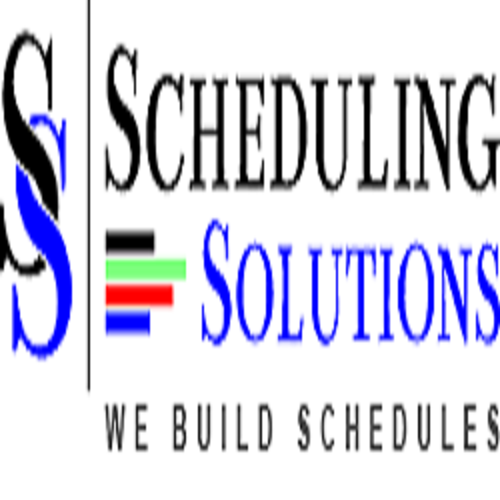How Project Scheduling Tools Keep Projects on Track

In modern project management, staying on top of deadlines and resources is one of the greatest challenges. Whether managing a construction project, a software rollout, or a marketing campaign, delays can quickly impact budgets and client satisfaction. That’s where project scheduling tools step in. These tools transform complex plans into actionable schedules, helping teams maintain focus, allocate resources, and deliver projects on time.
What Are Project Scheduling Tools?
Project scheduling tools are digital platforms or applications designed to plan, organize, and monitor project activities. They go beyond basic task lists, allowing project managers to set dependencies, allocate resources, track progress, and adjust timelines dynamically. These tools create a roadmap that not only outlines what needs to be done but also provides insights into potential bottlenecks and risks.
Why Are Project Scheduling Tools Important?
Modern projects are rarely simple. They involve multiple stakeholders, tight deadlines, and shifting priorities. Without the right scheduling tools, managers risk inefficiencies and delays. Here’s why these tools are essential:
-
Time Management – Breaks down complex tasks into manageable schedules.
-
Resource Optimization – Assigns people and equipment effectively.
-
Cost Control – Prevents wasted time and financial overruns.
-
Collaboration – Keeps stakeholders aligned with real-time updates.
-
Risk Reduction – Identifies potential delays early and suggests adjustments.
Key Features of Project Scheduling Tools
To maximize efficiency, scheduling tools usually include:
-
Task Management – Create, assign, and prioritize tasks.
-
Dependency Tracking – Show relationships between activities.
-
Critical Path Analysis – Identify the sequence of tasks that determines project duration.
-
Resource Allocation – Track staff, equipment, and budgets.
-
Gantt Charts – Visualize timelines and progress.
-
Dashboards and Reports – Provide real-time insights.
-
Collaboration Features – Allow teams to comment, share files, and update tasks.
Popular Project Scheduling Tools
Microsoft Project – One of the most widely used tools, offering powerful features for scheduling, budgeting, and reporting.
Primavera P6 – Favored in construction and engineering, supporting complex scheduling with thousands of activities.
Smartsheet – Combines spreadsheets with project management capabilities, ideal for flexible yet controlled scheduling.
Asana – Perfect for smaller teams and Agile environments, emphasizing collaboration with boards, lists, and timelines.
Monday.com – Intuitive design with automation for easier repetitive scheduling tasks.
Trello – Uses boards and cards to represent tasks and workflows, effective for light scheduling needs.
Wrike – Strong scheduling with customizable dashboards, useful for marketing teams and service-based organizations.
Benefits of Using Project Scheduling Tools
Adopting the right scheduling tool brings significant advantages:
-
Improved Productivity – Teams know their responsibilities clearly.
-
Better Communication – Everyone sees the same schedule.
-
Transparency – Stakeholders track progress without confusion.
-
Flexibility – Adjust schedules quickly when challenges arise.
-
Data-Driven Decisions – Use reports to forecast outcomes and allocate resources wisely.
Choosing the Right Project Scheduling Tool
Not every tool fits every organization. When selecting a tool, consider project size and complexity, budget, integration with other systems, ease of use, and scalability.
Best Practices for Effective Scheduling
Even with the best tools, success depends on proper use. Some practices include defining clear objectives, breaking projects into phases, setting realistic deadlines, updating frequently, engaging stakeholders, and reviewing past project performance for improvement.
The Future of Project Scheduling Tools
Technology is rapidly evolving. AI-powered scheduling tools are beginning to predict delays, suggest resource adjustments, and automate repetitive planning tasks. Cloud-based solutions also ensure remote collaboration, making scheduling more accessible across global teams. In the near future, project scheduling tools will not only plan but also optimize project execution in real time, helping organizations remain agile in uncertain business environments.
Conclusion
Project scheduling tools are no longer optional they are essential for modern project management. From managing complex construction projects with Primavera P6 to organizing small team workflows with Asana, these tools ensure efficiency, collaboration, and timely delivery. Organizations that embrace the right scheduling tools position themselves to reduce risks, improve communication, and achieve project goals effectively. In today’s competitive landscape, mastering project scheduling tools is the key to consistent success.
- Art
- Causes
- Crafts
- Dance
- Drinks
- Film
- Fitness
- Food
- Spellen
- Gardening
- Health
- Home
- Literature
- Music
- Networking
- Other
- Party
- Religion
- Shopping
- Sports
- Theater
- Wellness



